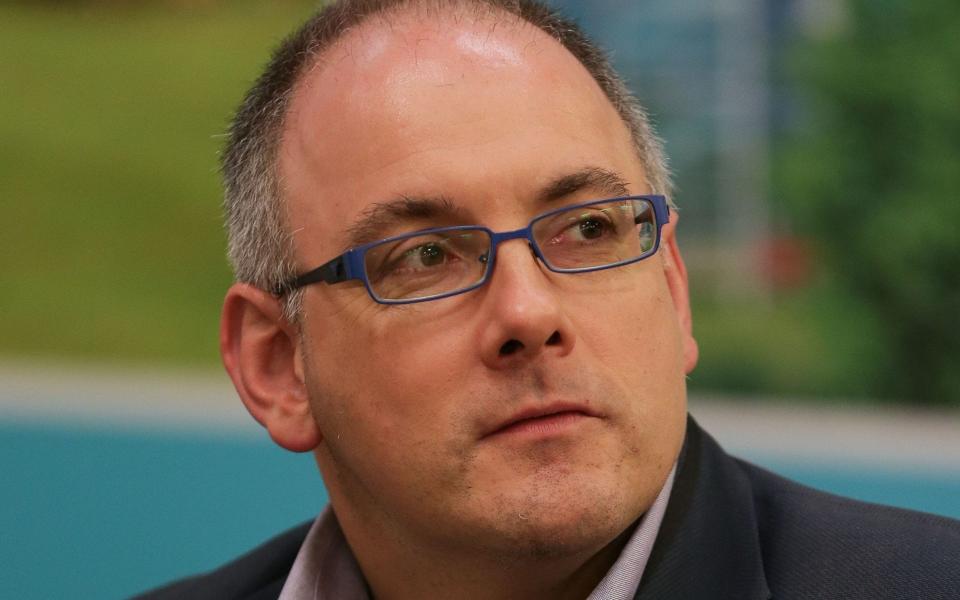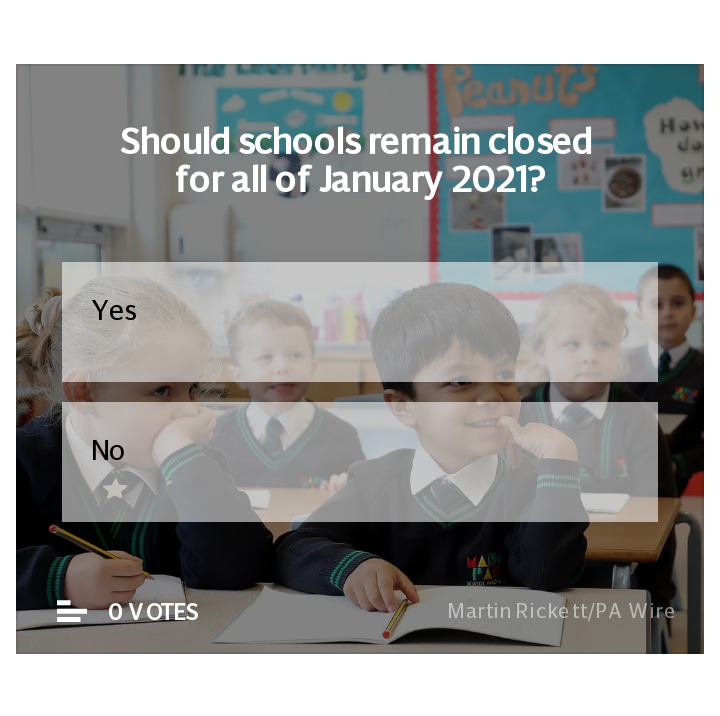Gavin Williamson warns of ‘enormous battle’ to avert schools lockdown in January


Gavin Williamson has warned allies he faces an “enormous battle” to keep secondary schools open in January, The Telegraph can reveal.
Officials from Number 10 and the Department for Education are understood to be preparing to hold a crunch meeting Monday after scientists warned that closures may be necessary to slow the spread of the new Covid-19 variant.
It follows reports that the department is fighting to reopen schools under the current staggered timetable from the beginning of next month, but has not ruled out a further delay until Januay 18.
The Telegraph can also reveal that figures in Downing Street held discussions last week on how headteachers would react if experts suggested closing schools was necessary on public health grounds.
On Saturday night, a Government source insisted that no decisions had been taken, adding that Covid-19 measures were always kept under review and informed by the latest scientific data.
It came as the Education Secretary was also urged to begin collecting data on the disruption coronavirus is causing to GCSE and A-level pupils’ learning, amid fears the Government is walking into another exams fiasco.
With attendance rates dipping in secondaries across England earlier this month, senior education leaders have warned that pupils in Covid-19 hotspots risk being unfairly penalised unless exam results are adjusted to reflect lost learning time.
Their concerns are shared by Robert Halfon, the Conservative chairman of the Commons education committee, who warns that “schools opening and closing like a revolving door” risks “damaging the life chances of our next generation".
Writing for The Telegraph, Mr Halfon said it is a “mystery” that the DfE has chosen not to collect attendance data for Year 11 and Year 13 pupils, which he argues would help inform ministers as to whether “adjustments” to exam marking are necessary and help identify pupils in need of additional support.

Ahead of the crunch meeting on schools, the Education Secretary is said to have privately expressed concern that so-called Covid “doves” in Government could cave to mounting pressure.
“Gavin is trying to keep them open, which is why he rolled out the testing stuff early,” a well-placed source said. “He’s facing an enormous battle. It’s the lockdowners [he’s fighting].”
It comes after the DfE announced earlier this month that secondary pupils would return over a staggered timetable in the new year while mass testing is rolled out at schools across England.
Under the plans, GCSE and A-level exam students in Year 11 and Year 13 will go back as normal after the Christmas break on January 4, but students in Years 7 to 10 and those in Year 12 will start the first week of term online rather than in class.
However, recent official statistics revealed that infection rates among secondary school children in Year 7 to Year 11 are the highest among the entire population.
Separately, on Friday a new study warned that the new Covid-19 variant may be “particularly marked” in children, although there is no evidence to suggest they suffer more serious illness.
A rapid analysis by the Centre for Mathematical Modelling of Infectious Diseases at the London School of Hygiene and Tropical Medicine found that the variant is 56 per cent more transmissible than other forms of the virus.

The study, which has not yet been peer reviewed, found that even if another national lockdown (similar to the one in England in November) was implemented, it would be “unlikely” to reduce the R rate to below one unless schools and universities were also closed.
Despite potential closures, the DfE has repeatedly pushed back against calls to cancel exams again this year, with ministers instead promising more generous marking and advance notice of test questions to help mitigate disruption during term time.
Ministers are setting up a new expert group to monitor disruption across different regions of the country, which will advise on whether further measures are necessary to level the playing field.
However, teaching unions believe that ministers and the regulator will be unable to identify the true extent of education inequalities caused by the pandemic because they are not collecting granular data on Year 11 and Year 13 absences.
Geoff Barton, the general secretary of the Association of School and College Leaders, told The Telegraph: “We have no idea how many in year groups are missing out classroom time as we haven’t got in the granular data.
“Even with regional adjustments [to exam marking], it’s a blunt instrument and is never going to be able to compensate for the range of circumstances people are experiencing.
“You can have two schools in Wigan, one which has had its Year 11 pupils off for four weeks, another which has had them in for four weeks. Unless you have the data, how do you know how to adjust accordingly.”

 Yahoo News
Yahoo News 
